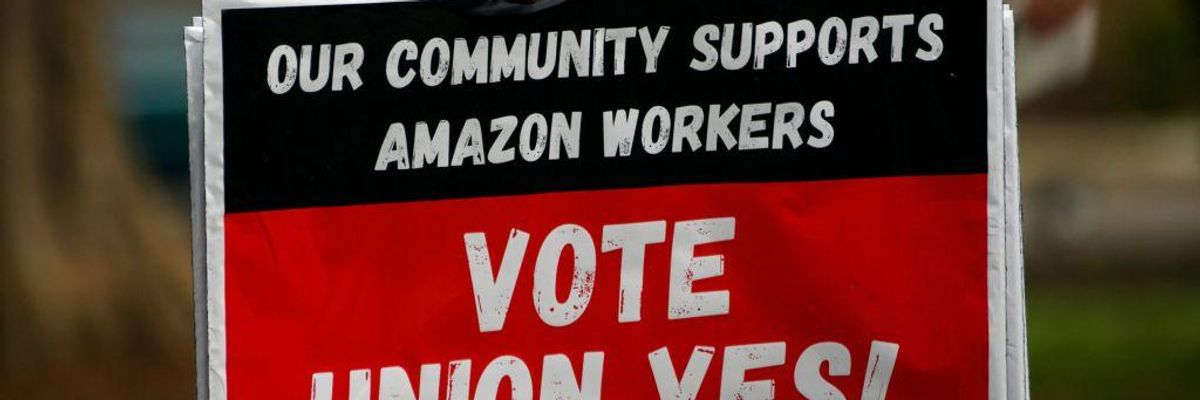Following one of the most high-profile union votes in history, workers at an Amazon warehouse in Bessemer, Alabama--led by Black organizers--ultimately rejected efforts to form a union by 71 percent, according to the National Labor Relations Board.
But for labor advocates, this fight is far from over.
"The Amazon workers who voted for a union in Bessemer are already winners," Rev. William Barber of the Poor People's Campaign said in a statement. "This is just the first round. Amazon did things to intimidate and suppress the vote. The workers are filing complaints, and they will continue to stand up. They have set a fresh trend in the South, and the echoes of their bold action will reverberate for years."
Nearly all of the union-busting tactics deployed by Amazon would be banned and enforced under the bill.
While the outcome may not have resulted in a union, there is no doubt that the Bessemer union drive is just the beginning of a re-energized national labor movement--a movement driven by the systemic inequality that has allowed Jeff Bezos to become the richest man in the world while his employees are forced to forgo breaks and urinate in bottles in order to meet demands from management.
Inspired by the fight in Bessemer, Amazon workers at other fulfillment centers in Baltimore, New Orleans, Portland, Denver, and southern California have all begun exploring ways to form unions at their own Amazon facilities.
"The American public is now hyper-aware of what Amazon warehouse workers and drivers are forced to go through: Grueling hours with impossible demands," said Erica Smiley, executive director of Jobs With Justice. "But now that these stories are finally being told, thanks to the organizing of the Black workers in Bessemer, Amazon workers nationwide are finally feeling safe and supported enough to start organizing their own warehouse."
Given the state of organized labor in the United States, every unionization drive is an uphill battle. And while support from the public for unions is generally positive -- polling from the AFL-CIO showed that an overwhelming 77 percent support a union for Amazon workers in Bessemer--current federal labor law isn't strong enough to thwart corporate union busting.
